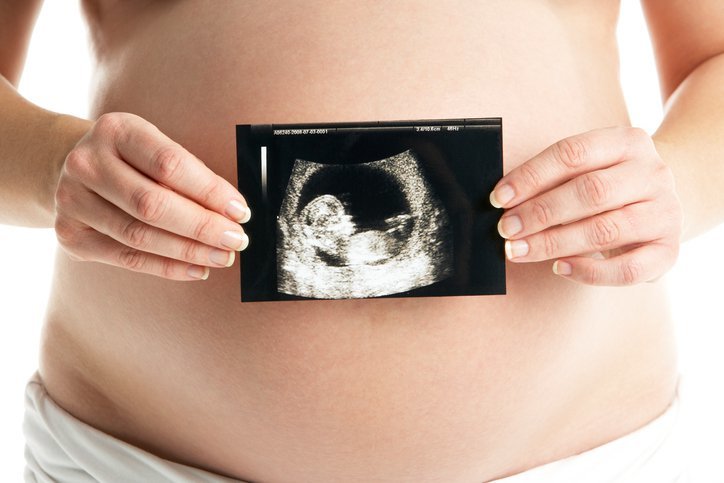Contents:
- Medical Video: How common is bleeding during first trimester(early pregnancy)? Is it normal? Dr. Sreeja Rani
- Bleeding during pregnancy does not mean miscarriage
- What causes bleeding during pregnancy?
- Bleeding during pregnancy that needs to be watched out
- What kind of bleeding is a sign of miscarriage?
- How to find out what is the cause of a miscarriage?
Medical Video: How common is bleeding during first trimester(early pregnancy)? Is it normal? Dr. Sreeja Rani
Bleeding during pregnancy is normal and this does not always endanger your baby. Maybe you think that bleeding during pregnancy is a sign of miscarriage. It is true, bleeding during pregnancy may be a sign of miscarriage, but not always so.
Bleeding during pregnancy does not mean miscarriage
About one in five pregnant women can have bleeding during pregnancy. Bleeding usually takes place in the first trimester of pregnancy and this is normal. Usually this bleeding occurs at the same time as your menstrual period and can last for 1-2 days.
However, if bleeding occurs in the second or third trimester of pregnancy, you should consult a doctor immediately, especially if heavy bleeding occurs accompanied by other symptoms (such as pain and contractions).
What causes bleeding during pregnancy?
Bleeding may be a sign of a miscarriage, but bleeding or spotting during pregnancy can also be a sign of another problem. Bleeding in the first trimester is usually caused by things that are not dangerous, such as:
- Due bleeding menstrual cycle that still occurs. This bleeding can occur when pregnancy hormones cover your normal menstrual cycle, but it turns out that the menstrual cycle can still occur temporarily. You may be able to experience this more than once during the early days of pregnancy. This does not mean you have a miscarriage.
- Due bleeding implantationwhen the fertilized sperm egg attaches to the wall of your uterus. This bleeding occurred in the first month. This can happen because the uterine wall adjusts the newly planted egg cell. But, bleeding because this is usually less common.
- Due bleeding the soft cervix blisters (cervical erosion or ectropion). Bleeding can be caused by vaginal infections, cervical infections, or the growth of harmless polyps. These three things can cause bleeding if your cervix is scratched, often due to sexual intercourse during pregnancy or after you have examined your pelvis.
Second or third trimeteral bleeding can also be caused by irritation or abrasions in the neck of the cervix, usually after sexual intercourse. Or it can also be caused by changes in the cervix which usually cause mild bleeding.
Bleeding during pregnancy that needs to be watched out
Heavy bleeding after the first trimester can also be caused by a serious problem with the placenta, such as:
- Abruptio placenta, when part or all of the placenta is separated from the uterine wall. Usually this happens after 20 weeks' gestation. This condition can result in premature birth or stillbirth (stillbirth) Bleeding caused by this condition is usually accompanied by contractions and abdominal pain.
- Placenta previa, where the placenta is under the uterus. This condition can cause limited growth of babies and heavy bleeding in pregnant women. Bleeding that occurs is usually not accompanied by pain or pain in the abdomen.
- Placenta accreta, occurs because the placenta is embedded too deep in the uterine wall, so the placenta is difficult to detach from the uterine wall. Placenta accreta usually occurs in the third trimester.
What kind of bleeding is a sign of miscarriage?
Bleeding caused by a miscarriage in early pregnancy will usually be accompanied by pain or cramps in the abdomen. Other than that, this bleeding usually occurs more severelyt and more, sometimes too blood clots along with your bleeding.
Apart from miscarriage, bleeding in early pregnancy can also be caused by an ectopic pregnancy or pregnancy outside the womb. Ectopic pregnancy occurs when the fertilized egg of the sperm attaches to another place other than the uterus, usually in the fallopian tube (the channel that connects the ovaries and uterus). In this condition, the egg cannot develop resulting in a ruptured egg cell and fallopian tube tissue causing bleeding.
This condition must be immediately addressed by a doctor. If it is not treated as soon as possible, the mother can experience a lot of blood loss and can cause the mother to become weak, faint, painful, in shock, even death.
How to find out what is the cause of a miscarriage?
Bleeding is common, but it is important that you tell your doctor or midwife about this. Your doctor can find out what causes your miscarriage and will make sure that nothing happens to you and your baby. Your doctor may examine you and do some tests, such as:
- Blood or urine test to determine your pregnancy hormone levels
- Check the condition of your cervix to make sure your cervix is still closed
- Do an ultrasound
- Check your baby's heart rate with ultrasound
READ ALSO
- Questions about sex and bleeding disorders
- Can Fatigue Really Cause Miscarriage?
- Early Miscarriage: What are the Causes and How to Prevent it?












